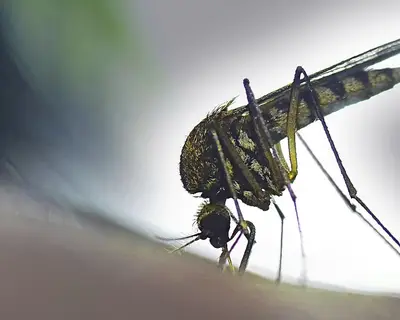Research Triangle Park, NC —Researchers from RTI International and the University of North Carolina at Chapel Hill will work together to study if and how Zika virus is affecting Americans’ travel plans.
“Warm weather means spring break and vacation travel to areas where people have become infected by getting bitten by a mosquito infected with the Zika virus,” said Linda Squiers, Ph.D., senior health communication scientist at RTI and the project’s director. “We want to understand whether American travelers are knowledgeable about how Zika is transmitted and prevented and whether the risk of Zika is affecting their travel plans.”
Researchers will survey 1,200 American who were planning to or are traveling to an area affected by Zika to assess their knowledge and perceived risk of the virus, and how their perceptions may have affected where and when they travel. The nationally-representative survey will also assess travelers’ beliefs about the effectiveness of different Zika prevention methods and their intent to adopt them.
Survey participants will be asked a series of questions, including where they heard or read about how to prevent Zika, which prevention methods they think are the most effective, their perceived risk of contracting Zika, and how these perceptions affected their travel plans.
Between January 1, 2015 and March 1, 2017, the Center for Disease Control and Prevention reported more than 5,000 cases of Zika in the United States. Almost 4,800 of these cases resulted from Americans traveling to affected areas. In US territories, there have been over 38,000 cases of Zika stemming from the bite of an infected mosquito.
The survey will take place in March 2017.
To learn more about RTI’s Zika research, visit our Emerging Issues page.

- Researchers from RTI International and the University of North Carolina at Chapel Hill will work together to study if and how Zika virus is affecting Americans’ travel plans
- Researchers will survey 1,200 American who were planning to or are traveling to an area affected by Zika to assess their knowledge and perceived risk of the virus, and how their perceptions may have affected where and when they travel
- The nationally-representative survey will also assess travelers’ beliefs about the effectiveness of different Zika prevention methods and their intent to adopt them
RTI International Media Relations:
